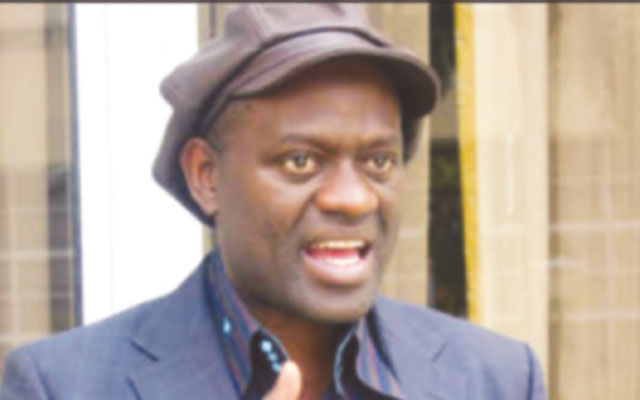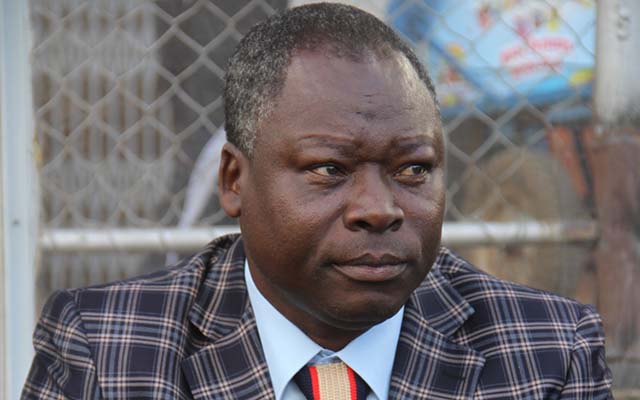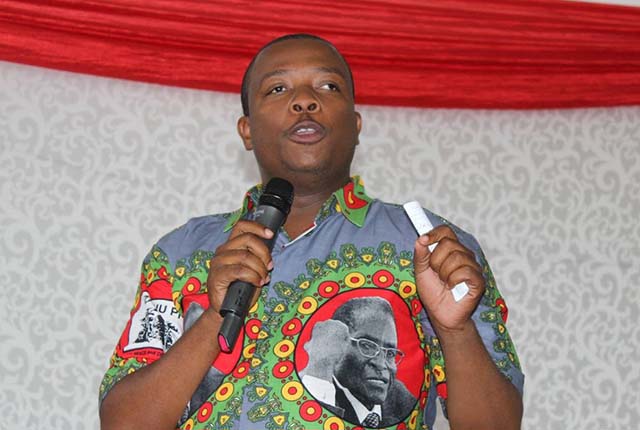Laughter, gloom in ‘Black Bazaar’

Stanely Mushava Literature Today
Among the master painters of African literature, Alain Mabankcou’s colour pallette is equal parts darkness and humour. In “Black Bazaar”, the Franco-Congolese writer returns to the barfly motif of his breakthrough novel, “Broken Glass”, to explore the lives of the African Diaspora.
Drawing from a bar he once frequented, Mabankcou casts a round- table of immigrants wrenching out their insecurities in bar talk, to create a dark, comic romp.
The novel could have been the funniest I have read if Africa’s Samuel Beckett (as Mabankcou is known in Francophone literary circles) had not gone on to create the droll, uproarious childhood duology, “Tomorrow I’ll be Twenty” and “Black Moses”.
Whereas the densely inter-textual “Broken Glass” revolves around a Congolese bar, Credit Gone West, “Black Bazaar”, takes us to Jip’s, an Afro-Cuban bar in France. For the narrator, though, liquor is not heavy enough to blur an embarrassing episode of cuckoldry so he sets on writing a novel to declutter the demons of the past from his mind.
It will not be an easy escape, not just because he is new to the form but also because he is surrounded by barbershop literary critics slapping him with unhelpful stereotypes on how to write a novel. Roger the French-Ivorian’s advice is as purist as it is self-deprecating, insisting “when it comes to us negroes, well then writing is not our thing”.
“Our problem it is that we did not invent the printing press or the ballpoint pen, and we will always sit at the back of the classroom fantasising about how to write the history of the dark continent with our spears.
“Do you understand what I am saying? Plus we have got a funny accent, you can hear it even when we write, and this people do not like. And another thing, you need real-life experience to write. What real life experience have you got, eh? Nothing! Zero!,” Roger attempts to blow out the candle in the narrator’s study.
While the barstool scholar’s is tripping on the hellhole image of Africa, with literary advice that sits somewhere between ignorance and stupor, he has a point on African accents showing through Francophone and Anglophone novel, a complimentary insight into how novelists like Mabankcou function.
Mabankcou observes in a World Literature Today interview, “ . . . in France, they will think of me as someone who is speaking French with an accent, an African accent”, something that can be equally be said of his writing’s fusion of formal elegance and slang, its appropriation of the Congolese canon of myth, lore and cosmology.
For Mabankou, one needs not sacrifice identity in order to reach the world, hence the stubborn accent becomes the global-minded writer’s national avatar. The African accent in a foreign language addresses, in part, Ngugi’s never-ending jeremiads for the mother tongue.
Mabankou has no problem writing in French but says French has a problem with him. “Literary commentators in France have to deal with what I am writing. Although it is written in French, they often prefer to call it ‘Francophone literature’, a term implying that this literature comes from far away.
“For many in France, ‘Francophone literature’ means something like a ‘small literature’ above which you would find French literature. I endeavour to explain to French writers that they do not have the monopoly of the French language; that sometimes French language is even more protected by people like us, who are coming from smaller countries . . .” Mabankcou tells the African Book Club.
Aside the creative control by intrusive peers, the “Black Bazaar” narrator has to deal with the self-awareness, social and economic pressure that comes with idling about in a foreign land on the precarious excuse of writing a novel instead of holding together a respectable 9-5 job.
With plenty to clog his cathartic outlet, from friends to Mr Hippocratic, the self-installed gatekeeper of French pride who finds African emigres insuffer- able though he is equally black and exasperates the narrator with his antics, the book takes much longer to shape up.
When the novel within a novel, also called “Black Bazaar”, is finally done, after one and half years, the narrator is no longer smarting about his baby mama, Original Colour, eloping to Congo with an itinerant band member, The Hybrid, newly in love with Sarah, a cultured, bibliophic, crushworthy Belgian artist who dotes on his writing.
There is a footnote on the real-life identity of Sarah, leaving the reader at a loss as to how fiction bleeds into fact in this novel. A Haitian author is also a moving presence in the novel, giving the author the only decent literary advice before Sarah extends his influences.
Mabankcou is not only the best dressed writer in the world, but also knows just how to dress his characters. The narrator, who appears on the cover in a comically showy yellow and black suit is a Congolese dandy who lives by the saying: “Show me how you knot your tie and I will tell you who you are.”
With “six big suitcases of clothes and shoes – mostly crocodile, anaconda and lizardskin Westons, as well as Church’s, Bowens and some other English shoes” the narrator is a fitting exponent of the Society for Ambient People and Persons of Elegance, SAPPE. An RT documentary, “Congolese Dandies: Dressed Like a Million Dollars in a Sea of Poverty” details the culture full colour, notwithstanding the elitist remove of the title.
For the fashionista narrator, keeping up appearances is what you do when the world is giving way beneath your feet in a foreign land. True to his object saying, though, the Sapper can unpack anyone’s resume based on how he knots his tie.
“Broadly speaking, I’ve noticed that shy men wear their ties tightly knotted, and in our crowd we call them suicidals. As for the thugs – who we call pimps – they look like men at the gallows with their knot close to the throat, while the show-offs plump theirs up big time. They deserve their nickname of cooking pot lids because they have this cast iron belief that the best is always on the outside and not on the inside.
“The ones we dub bulls with no style are messy, their tie-knots look like the bony humps on an ass’s back, and they don’t even notice until the day their girlfriend points it out to them in despair. The austere and meticulous ones – or priests in our language – do everything to make sure their tie doesn’t move. They can spend a whole day without readjusting it. The chatterboxes – or sparrows – wear a loose knot,” the narrator has it all internalised.
One fashion detail, though, leaves him smarting from the loss of his baby mama to the unruly drummer: “The cuckolds – or has-beens – wear theirs to the side, sometimes it’s even the wrong way round. Do I need to remind you I’m no cuckold, seeing as I wasn’t married to my ex?”
The narrator and his friends are quick with nicknames. Original Colour is so named because of her dark skin; Mr Hippocratic earns his moniker over his desperate invocation of the Hippocratic Oath to doctors after his near-fatal fall from the fourth floor while snitching on his neighbours; The Hybrid is inspired by hot resent but no annotation is provided.
Women are targets of mischievous imaginations – the advice about marrying white women as a way of forcing France to pay up her colonial debt to Africa; the minister’s daughter whom the narrator gets to cough up hotel bills in the confidence that he is the owner of a car parked outside, probably also to force her father to pay his debt to the citizens.
Although Mabankcou has cracked out of the romantic, prescriptive cocoon from which other writers correspond to Africa, there are lots of indictments on elite corruption running through his books. Political conversations go on in unassuming settings, driven by the author’s drollery and satire. Some characters are liberally loaned from one book to another, the way faces and places progressively surface in “Tomorrow I’ll be Twenty”, “The Lights of Point Noire” and “Black Moses”.
Mabankcou, one of Africa’s foremost writers across generations, remains to assume his appropriate position atop the canon in the Anglophone world.
- Feedback: [email protected]








Comments